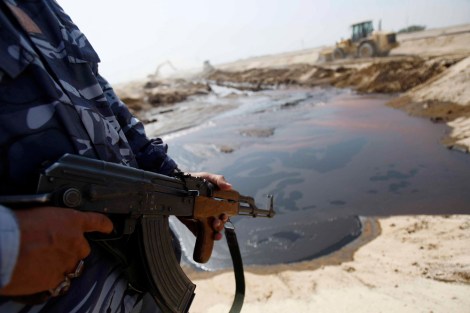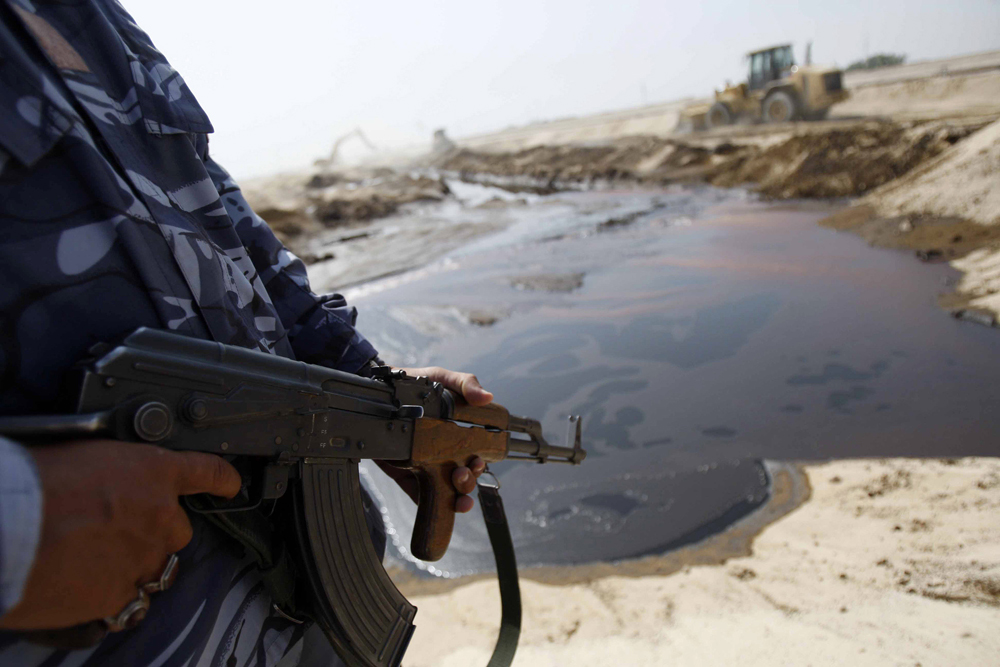When George W. Bush decided that the United States (and its “allies”) were going to invade Iraq, there was some small amount of outcry. Opposition focused on three areas: speculation that Bush only wanted to open the country’s oil markets, concern that an invasion would spark civil conflict, and some displeasure that the administration lied about Iraq’s arsenal of weapons. (In retrospect, these critiques were pretty fair.)

Atef Hassan / ReutersA policeman stands guard near a pool of oil that leaked from a damaged pipeline in Basra province.
So it’s with some anguish and a sense that the cosmos has again rearranged itself that we report another hiccup in Iraq’s already turbulent passage to stability. At the center of it: one of the oil companies for whom several hundred thousand American troops kicked open the door.
From the Washington Post:
With their opposing armies massed on either side of the contested border dividing southern and northern Iraq, leaders in Baghdad and the semiautonomous Kurdistan region are warning they are close to civil war — one that could be triggered by Exxon Mobil.
Although leaders on both sides are negotiating a walk back from the brink, they also say their armies could easily be provoked into battle. …
“The prime minister has been clear: If Exxon lays a finger on this territory, they will face the Iraqi army,” said Sami Alaskary, a member of parliament and close confidant of Prime Minister Nouri al-Maliki. “We don’t want war, but we will go to war, for oil and for Iraqi sovereignty.”
ExxonMobil is not the first company to attempt to walk the line between Kurdistan and Iraq proper. Earlier this year, Chevron announced a deal with the Kurds and was black-listed by Iraq. Exxon’s leases are closer to the informal border with Iraq, raising the government’s ire.
Tensions rose last month when Iraqi forces tried to arrest a Kurdish fuel seller, who appealed to Kurdish troops, the pesh murga, to protect him. Gunfire erupted.
The Baghdad military officer said the Iraqi army would open fire under three scenarios: if the pesh merga fire first, if the pesh merga advance beyond their current positions, or if oil companies begin working in disputed areas.
“If they do this, it’s a declaration of war,” the officer said. “They will have started it.”
Exxon hopes to begin drilling (with the U.S. government’s tacit blessing) next summer. Assuming that, in the interim, it doesn’t spark an armed conflict centered on the land where it hopes to drill.
We shouldn’t be surprised that it’s come to this. The last time a Texas-based fossil fuel interest wanted to get more oil out of Iraq, the results were about the same. At least we’re not pretending it’s about WMDs anymore.



